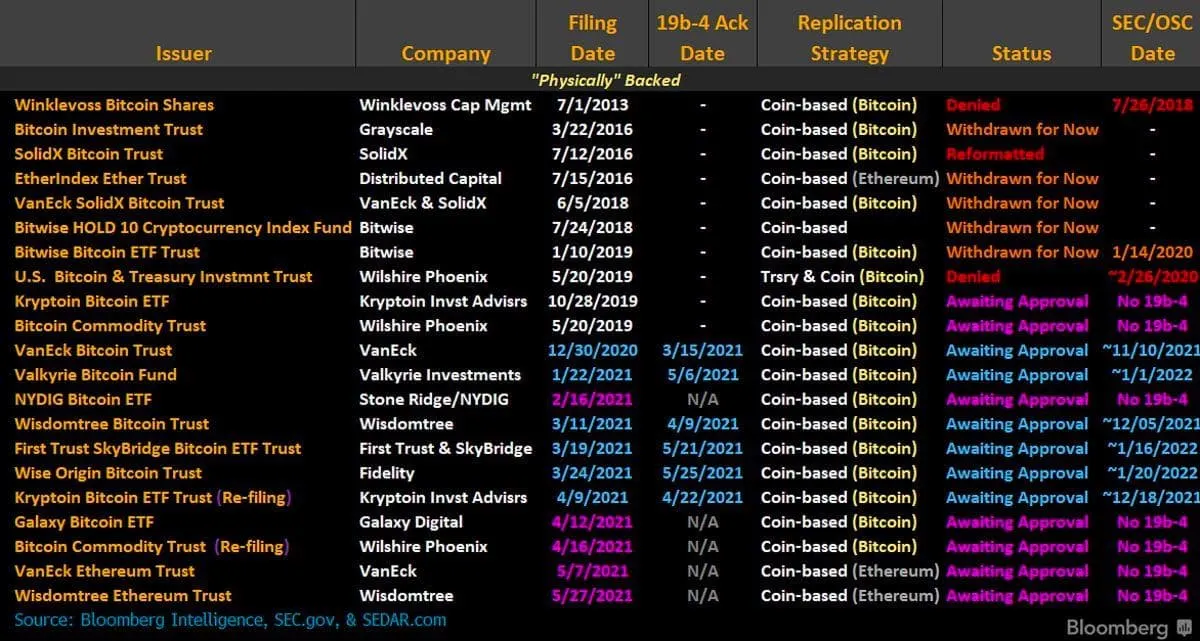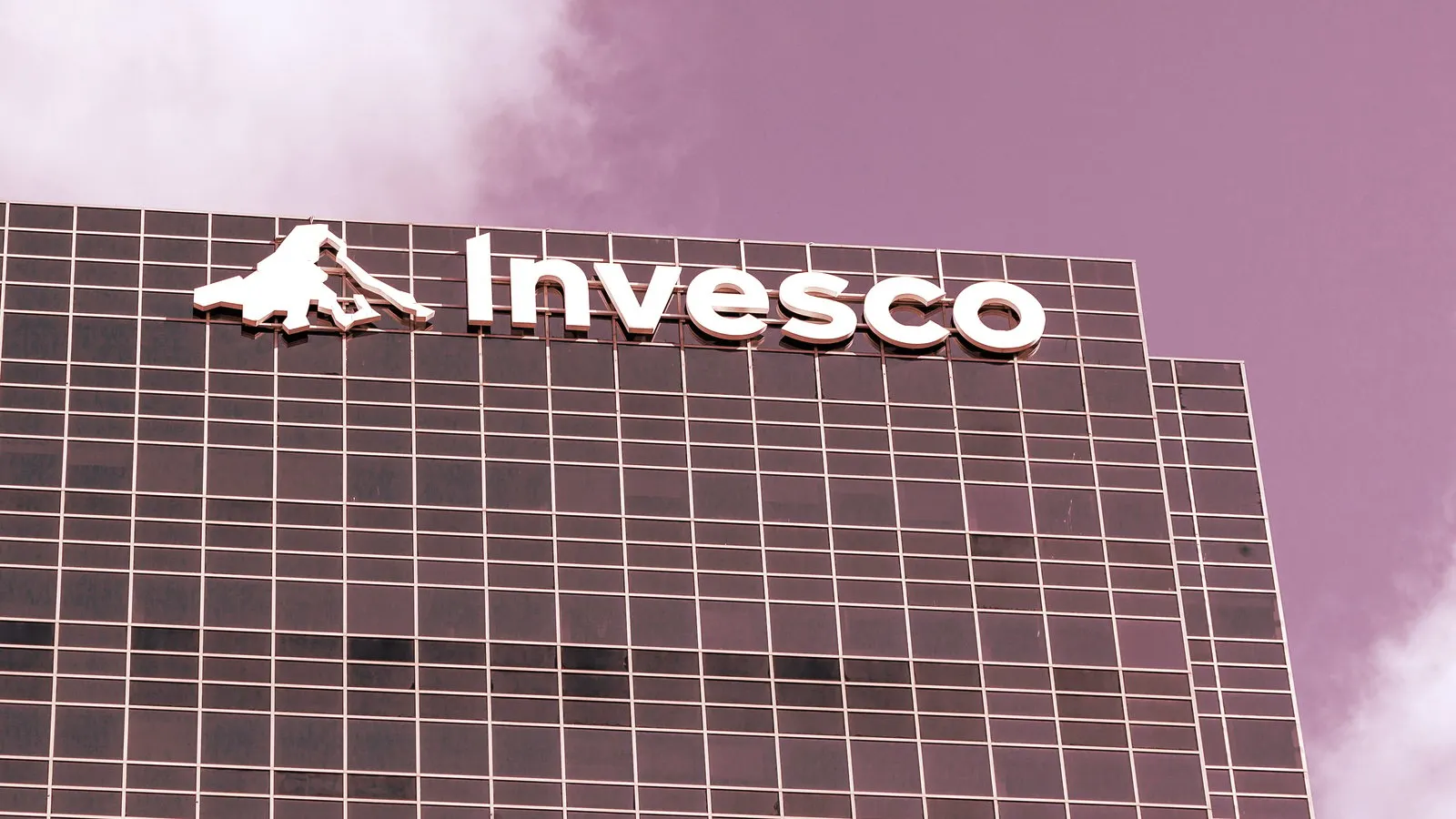Invesco, a U.S. investment firm with $1.3 trillion in assets under management, has filed two applications for crypto-specific exchange-traded funds (ETFs). The two applications join more than a dozen other hopefuls looking to launch cryptocurrency ETFs.
The Securities and Exchange Commission (SEC) has never approved a crypto ETF application since the Winklevoss twins first filed the Winklevoss Bitcoin Shares in 2013. This application was denied in 2018.

Unlike proposed ETFs that would actually hold cryptocurrency on their balance sheets, Invesco’s ETFs will offer investors exposure to cryptocurrency at one remove, through exposure to equities adjacent to the crypto industry such as cryptocurrency mining firms and companies that hold Bitcoin and other cryptoassets.
The thinking goes that the SEC will be more lenient with this variety of allocation given their bearish stance on the asset class. In May, the SEC's Division of Investment Management issued a statement saying that investors should be mindful of Bitcoin’s volatility, as well as “the lack of regulation and potential for fraud or manipulation in the underlying Bitcoin market.”
Bitwise, a crypto-centric investment firm, was the first ETF provider with crypto in its name to land approval. The Bitwise Crypto Industry Innovators ETF comprises a basket of crypto companies and companies holding cryptocurrencies on their balance sheets.
According to Invesco’s filing, 85% of both its ETFs will invest in securities of companies that mine cryptocurrencies, crypto-enabling technologies, and those that hold cryptocurrencies on their balance sheets, such as Square, Tesla, and Microstrategy.
Crypto-enabling technologies would include companies that facilitate trading, custodial services, and even those that supply semiconductors specifically for mining machines.
The filing comes just months after the firm’s CEO, Martin Flanagan, said that central bank digital currencies put “the value of Bitcoin at risk.” Given the allocation of both Invesco ETFs, nationalized digital currencies would remain a boon for these funds.

